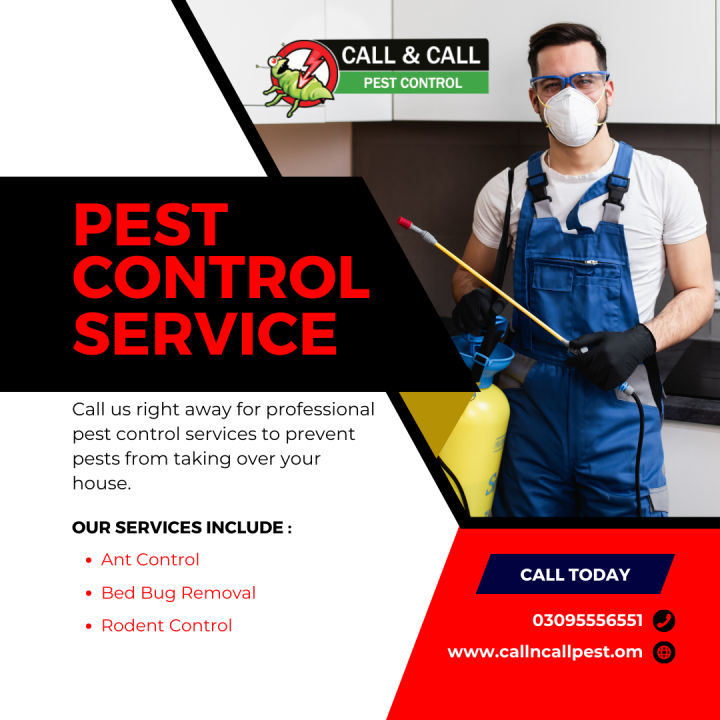Comprehending the Various Techniques to Insect Control: A Comprehensive Overview

Natural Parasite Control Methods
Employing environment-friendly strategies such as companion growing and organic parasite control is crucial for efficiently taking care of insects in farming settings. Companion planting entails growing different plants in closeness to hinder bugs, boost nutrient uptake, and boost overall crop health and wellness. For instance, planting marigolds alongside tomatoes can aid push back nematodes. Intercropping maize with legumes can disrupt the breeding patterns of insects like corn borers.
Biological pest control includes introducing all-natural predators or microorganisms to regulate pest populaces. Ladybugs, as an example, feed upon aphids, managing their numbers without the demand for chemical pesticides. Another example is using Bacillus thuringiensis (Bt), a microorganism that targets certain insect pests while being safe to human beings, animals, and beneficial pests.
These environmentally friendly techniques not only decrease the dependence on synthetic chemicals yet additionally assist maintain biodiversity and dirt wellness. By incorporating natural insect control techniques into farming methods, farmers can achieve lasting bug management while minimizing negative impacts on the environment.

Chemical Insect Control Solutions
In addition to all-natural bug control techniques, the application of chemical pest control services plays a significant function in effectively taking care of pest populaces in agricultural environments. Chemical parasite control options are formulated to target specific insects that might trigger considerable damage to crops. These options typically contain artificial chemicals that are designed to remove insects promptly and efficiently.
One of the crucial advantages of chemical pest control options is their effectiveness in regulating insect invasions widespread. Farmers can use these solutions making use of numerous approaches such as splashing, airing out, or seed therapy to safeguard their crops from dangerous bugs, weeds, and diseases. Additionally, chemical insect control solutions are reasonably easy to use and can give fast outcomes, aiding farmers protect their returns and decrease financial losses.
However, it is important to utilize chemical bug control options sensibly to lessen potential adverse influence on the setting, non-target organisms, and human health. Correct application methods, adherence to security standards, and regular monitoring are vital to guarantee the accountable use of chemical bug control remedies in farming methods.
Organic Parasite Control Approaches
Organic parasite control approaches utilize natural killers or pathogens to handle parasite populaces in agricultural setups successfully. One typical biological control method is the intro of all-natural enemies, such as ladybugs or parasitic wasps, to target particular bugs.
One more biological control method includes making use of virus like bacteria, fungis, or viruses to contaminate and eliminate bugs. In general, organic pest control methods supply a sustainable and targeted solution to pest administration in farming.
Integrated Insect Management (IPM)
Integrated Parasite Monitoring (IPM) is an extensive technique that integrates numerous pest control techniques to properly take care of and decrease pest populaces in agricultural systems. IPM focuses on lasting avoidance of bugs with a mix of organic, social, physical, and chemical control techniques. By integrating these various methods, IPM intends to decrease reliance on chemical pesticides, reduce ecological effect, and advertise sustainable pest administration practices.
One trick facet of IPM is using organic controls such as natural killers, parasites, and microorganisms to control bug populaces. This approach utilizes the power of nature to maintain a balance between insects and their natural adversaries without triggering harm to the environment.
In addition, IPM includes cultural techniques helpful resources like plant environment, rotation, and hygiene manipulation to produce unfavorable conditions for bugs and interrupt their life cycles. Physical controls such as barriers, mulches, and catches are likewise used to protect against insect invasions.
Mechanical and Physical Parasite Control Techniques
Using non-chemical approaches, such as mechanical and physical parasite control methods, is a crucial aspect of extensive insect management strategies, building on the foundation of Integrated Parasite Management's all natural method. Mechanical parasite control includes the usage of physical barriers or catches to avoid pests from accessing and harming plants or frameworks. This technique can consist of methods like mounting displays on home windows, making use of row covers in agriculture, or utilizing sticky traps to capture insects.
Physical pest control techniques, on the various other hand, emphasis on directly eliminating pests through physical means. As an example, making use of warm treatments to get rid of bed insects or vacuuming up pests like ants or crawlers can be effective methods to manage problems without making use of chemicals. By including these physical and mechanical bug control strategies right into an Integrated Pest Monitoring strategy, individuals and experts can reduce reliance on pesticides while still efficiently decreasing and taking care of pest populations damage.
Final Thought

In addition to all-natural parasite control approaches, the usage of chemical parasite control solutions plays a substantial role in efficiently handling pest populaces in farming atmospheres.One of the key benefits of chemical insect control remedies is their effectiveness in controlling insect problems on a big range.Integrated Pest Administration (IPM) is a detailed approach that incorporates numerous parasite control strategies to effectively take care of and minimize pest populations in farming systems.Utilizing non-chemical approaches, such as mechanical and physical bug control strategies, is a vital aspect of thorough insect management methods, constructing upon the foundation of Integrated Parasite Monitoring's holistic check method. By integrating these mechanical and physical pest control techniques right into an Integrated Bug Management strategy, professionals and people can minimize dependence on pesticides while still effectively lessening and managing pest populaces damage.